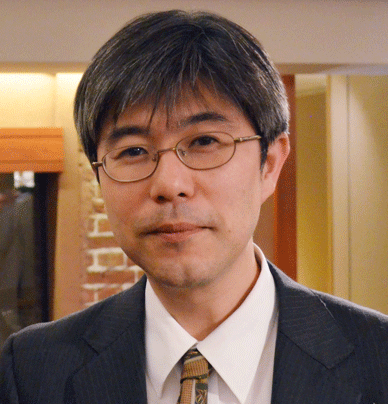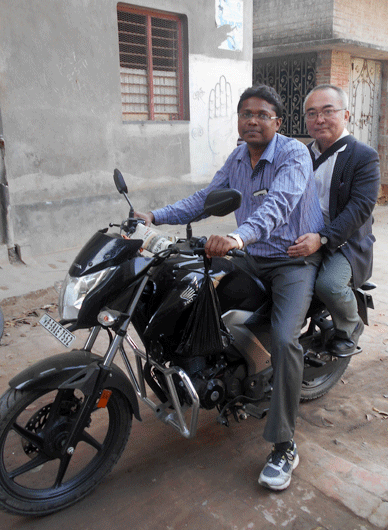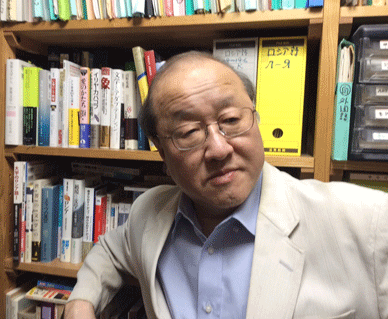Greetings
 Yoshiro IKEDA (Chair of the Organizing Committee) Yoshiro IKEDA (Chair of the Organizing Committee) |
Dear colleagues!
We will celebrate the Tenth East Asian Conference on Slavic-Eurasian Studies in Tokyo. This is an anniversary convention, the tenth gathering of our academic community from East Asia and beyond. Also, this conference will serve as the launch pad for the Tenth ICCEES World Congress, which will be held in Montréal in 2020. Thus, we hope that our colleagues, not only from Asia but from around the world, will come together to discuss a wide range of topics in Slavic-Eurasian studies. The main theme of the conference is "Brave New Fragmented World, Or How To Make It Manageable". This title originates from "O brave new world", a cry raised by Miranda in Shakespeare's The Tempest, upon encountering a group of unknown people. Today, we also seem to be facing an unknown world order, full of conflicts and collisions. However, our knowledge of history can also suggest that what we see is nothing more than a return to the normalcy. Rather than falling into despair, we should grasp boldly the reality, as our Call for Papers encourages. The venue of our conference—the University of Tokyo, the oldest university in our country—has witnessed, and partly shaped, the history of modern Japan, and is also located in a historical area of Tokyo. Because of this, you will be able to find a number of historical monuments in and around the conference venue, and will also be able to enjoy beautiful parks, temples, museums, and galleries. Building on our past experience organizing the Ninth ICCEES World Congress 2015 in Makuhari, we will strive to provide the best conditions and venues for discussion and collaboration. We are looking forward to seeing you all in Tokyo!
Yoshiro Ikeda Associate Professor, Faculty of Letters, Department of Occidental History, the University of Tokyo |
 Kimitaka MATSUZATO (Secretary General) Kimitaka MATSUZATO (Secretary General) |
Dear colleagues,
I am delighted to invite you to the Tenth East Asian Conference on Slavic Eurasian Studies, which will be held on June 29‒30, 2019 at the Hongo Campus of the University of Tokyo. Following the First and Fifth East Asian Conferences in Sapporo and Osaka respectively, this is the third conference hosted by the Japanese Council for Russian and East European Studies. During the last ten years, Slavicist cooperation has taken deep roots in Asia, as the last East Asian Conference held in Ulaanbaatar in June—July 2018 demonstrated. As this conference adheres to bilingualism, its working languages are English and Russian. All panels should be international, composed of citizens from more than two countries. Recently, an increasing numbers of colleagues from outside of Asia – from former socialist countries, Europe, and the United States – began to take part in the conference. In tandem with its leading organizer, Professor Yoshiro Ikeda, I will do my best to make the Tenth East Asian Conference on Slavic Eurasian Studies as equally exciting and engaging as the past conferences, and to then pass the baton to the Tenth World Congress of the International Council of Central and East European Studies, which will be held in Montreal on August 4—9, 2020 (more information at: http://iccees.org/world_congresses/world_congress2020/). The main concept of the Tenth East Asian Conference is "Brave New Fragmented World, Or How to Make It Manageable." This is an ambitious concept which is bound to make the conference multifaceted. We are waiting for proposals from various academic disciplines. A standard panel should be composed of five panelists (three papers, the chairperson, and a discussant). A roundtable should be composed of four or five participants (three or four speakers and the chairperson). Please submit PANEL or ROUNDTABLE proposals to us. Although we may accept individual proposals after a strict review process, we ardently suggest you to organize your own panels or roundtables. You may propose not only one, but multiple panels or roundtables, though you can play each specific role (chairperson, discussant, paper presenter, roundtable speaker) only once during the conference. If you wish to find panelists (paper presenters, roundtable speakers, chairpersons, or discussants) appropriate for your topic, please contact the Organizing Committee, which will try to recruit the panelists that you need. Along with making this new world more manageable, we also hope to make the conference well-managed as well. For this purpose, we are working in cooperation with the JIC Travel Center which will provide comprehensive services in regard to assisting you in obtaining a Japanese visa, reserving flights and hotels, paying the conference registration fee, and enjoying the post-conference tours. The JIC Travel Center has previously assisted the East Asian Conference in Osaka in 2013 and the ICCEES World Congress in 2015.
Please be aware that the proposal deadline is March 20, 2019. We are looking forward to seeing you in Tokyo then as we enjoy the fresh verdure of spring!
Kimitaka Matsuzato Professor, Faculty of Law, the University of Tokyo Honorary Professor of the Faculty of Political Science, M. V. Lomonosov Moscow State University Honorary Professor of Shanghai International Studies University
|
 Mitsuyoshi NUMANO (Vice Chair and Treasurer of the Organizing Committee) Mitsuyoshi NUMANO (Vice Chair and Treasurer of the Organizing Committee) |
Warm greetings and welcome to the campus of the University of Tokyo!
Let me extend you our most cordial welcome on behalf of the organizing committee. It is our great pleasure and honor to host the 10th East Asian Conference on Slavic Eurasian Studies at the University of Tokyo. We are committed to making this conference a great success. We will do our best to make your stay in Tokyo as pleasant and fruitful as possible, so please feel free to contact our office should you have any questions. Here we will discuss an extremely wide range of topics in Slavic and Eurasian studies. It is not, however, an attempt to create a simple meeting place, but rather an agora where various opinions reverberate with each other. We will not try to come to a conclusion about what our discipline should be; we'd rather seek for a repercussion of diverse voices that will linger in our mind, hinting at the vague shape of something that looms still in the distance. Although we know that the different opinions and positions – both political and aesthetic- will not easily dissolve into a unanimous agreement, we do hope that by conducting dialogues face-to-face and listening to each other, we can convince ourselves that, in spite of different languages and even different ideologies, we are united by the common enthusiasm of inquiry into our arts and sciences. Let us enjoy the enormous "heteroglossia" of diverse voices and the simple universality of earnest scholarship that freely crosses political borders. I believe that it is precisely in our times of trouble and abominable "post-truth" that scholars have the responsibility to engage in transnational dialogues. Only through such exchanges can we make a step forward to a better world. After all, I am one of those old-fashioned humanists who still believe that bad politics divides people while true art and scholarship unites them. As the poet Joseph Brodsky declared in his Nobel lecture, «Философия государства -- всегда "вчера"; язык, литература -- всегда "сегодня" и часто даже и "завтра"» (the philosophy of the state is always "yesterday", while language and literature are always "today" and often "tomorrow".) Yes, the future is what matters. That is what our conference is all about.
Mitsuyoshi Numano 沼野充義 Мицуёси Нумано Professor at the Department of Contemporary Literary Studies/ Slavic Studies, The University of Tokyo; President of the Japan Society for the Study of Slavic Languages and Literatures |
